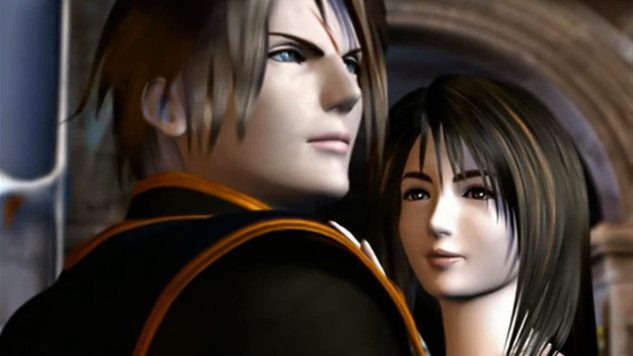Final Fantasy VIII Is What the Series Needed Then and What It Needs Now

It’s not my ultimate favorite in the franchise, but for me, Final Fantasy VIII is The One. We all have that: The One that has stuck with you the most; The One you’re willing to defend to the death (and being a VIII stan requires this every so often); The One that makes you emotional just by thinking about it. It’s easy to overlook what many have deemed as flaws over the years because it’s Final Fantasy at its best—unafraid to evolve, unwilling to become complacent, and unrestricted in creativity and heart. It’s what Final Fantasy needed at the time of its release. While playing the new remastered version in 2019, I feel like it’s what the series needs today, too.
VIII came out only two years after Final Fantasy VII, a game that revolutionized JRPGs and videogame storytelling. There’s no easy way to follow up a game with the impact of VII. The logical inclination is to try to mimic that success with the same formula. It usually works a second time, too—but that second time demands an imminent change before the whole series becomes resigned to stagnation. Square Enix realized this and didn’t bother with trying to recreate VII’s success that second time. They just immediately broke the Final Fantasy formula, transforming the series’ identity into something bold and unpredictable. While this is where much of the ire for the title stems from, it’s also why it’s brilliant.
VIII centers on Squall Leonhart, a student at a military academy for teenagers who train to become SeeDs. SeeDs are elite soldiers who are hired to help civilians and other military factions. Squall’s dedication to his training and antisocial nature stemming from his troubled past as an orphan have led to him being reluctant to make friends or talk to people in general. Eventually, he meets Rinoa Heartilly, an activist who hires him and a few accompanying SeeDs to help her government resistance group with carrying out a mission. The two gradually fall in love and embark on a sprawling journey of transformation, war and time travel, among many other things. You know, the usual stuff. I won’t say more because I want you, reader, to actually play it if you haven’t yet. Know, though, that it constantly goes to dark, weird and magnificent places.
One of my favorite aspects about how VIII ditched the series formula is that it’s a love story. Sure, the games before it incorporated romance, but romance was one of many components and one which rarely took precedence over all else. VIII is an inverse of past installments in this regard; the romance is the story, while themes like identity, self-acceptance and family are its supporting pillars. The romance also remains the best in the series, largely because it has so much time to develop. At the end, it culminates in a mutual transformation for both Squall and Rinoa. Their relationship challenges them, forces them to face uncomfortable truths and teaches them to overcome them together. They’re teenagers, but it’s a mature and touching relationship in which the two learn to respect each other and become better individuals. Their relationship is a natural evolution, much like VIII feels like for the series in retrospect.

-

-

-

-

-

-

-

-

-

-

-

-

-

-

-

-

-

-

-

-

-

-

-

-

-

-

-

-

-

-

-

-

-

-

-

-

-

-

-

-








































